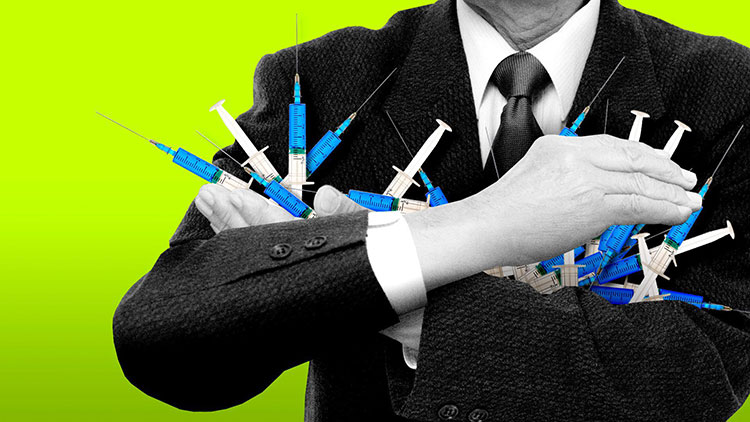Lipid Nanoparticles from mRNA Vaccines Travel To Heart and Other Organs

A new study is the first to suggest a clear mechanism to explain extensive reports
of heart and other organ damage in recipients of mRNA COVID-19 vaccines
Lipid nanoparticles used in mRNA COVID-19 vaccines do not remain in the injection site as claimed, but instead circulate through the body, reaching the heart and other organs, according to a new study.
This new study, published in the journal Nature Biotechnology, is the first to suggest a clear mechanism to explain extensive reports of heart and other organ damage in recipients of mRNA COVID-19 vaccines.
When the vaccines were developed, health authorities claimed that the lipid nanoparticles would remain localized at the injection site, but there existed no technology to verify their claim accurately.
The scientists behind the new study came up with an experimental technology to allow them to follow the nanoparticles in the body of rodents.
The technology, called “Single Cell Precision Nanocarrier Identification,” was designed to map and quantify where nanoparticles injected into a mouse ended up. The technology uses machine learning to analyze image data—making it possible to precisely quantify where the nanoparticles travel across the entire body, down to the level of individual cells.
The researchers found that even at extremely low doses, the lipid nanoparticles reached the body’s internal organs. The nanoparticles reached the heart and were observed to cause tissue and cellular changes.
“Our finding of changes in the expression of immune and vascular proteins in heart tissue after LNP [lipid nanoparticle] spike mRNA delivery aligns with reports of myocarditis and pericarditis in a subset of individuals who received mRNA vaccines,” the researchers write.
As at 27 December 2024, 27,357 cases of myocarditis and pericarditis—serious conditions of the heart—had been reported to the Vaccine Adverse Event Reporting Systems (VAERS) as a result of COVID-19 vaccines, with the vast majority of cases—over 20,000—attributed to the Pfizer vaccine.





















